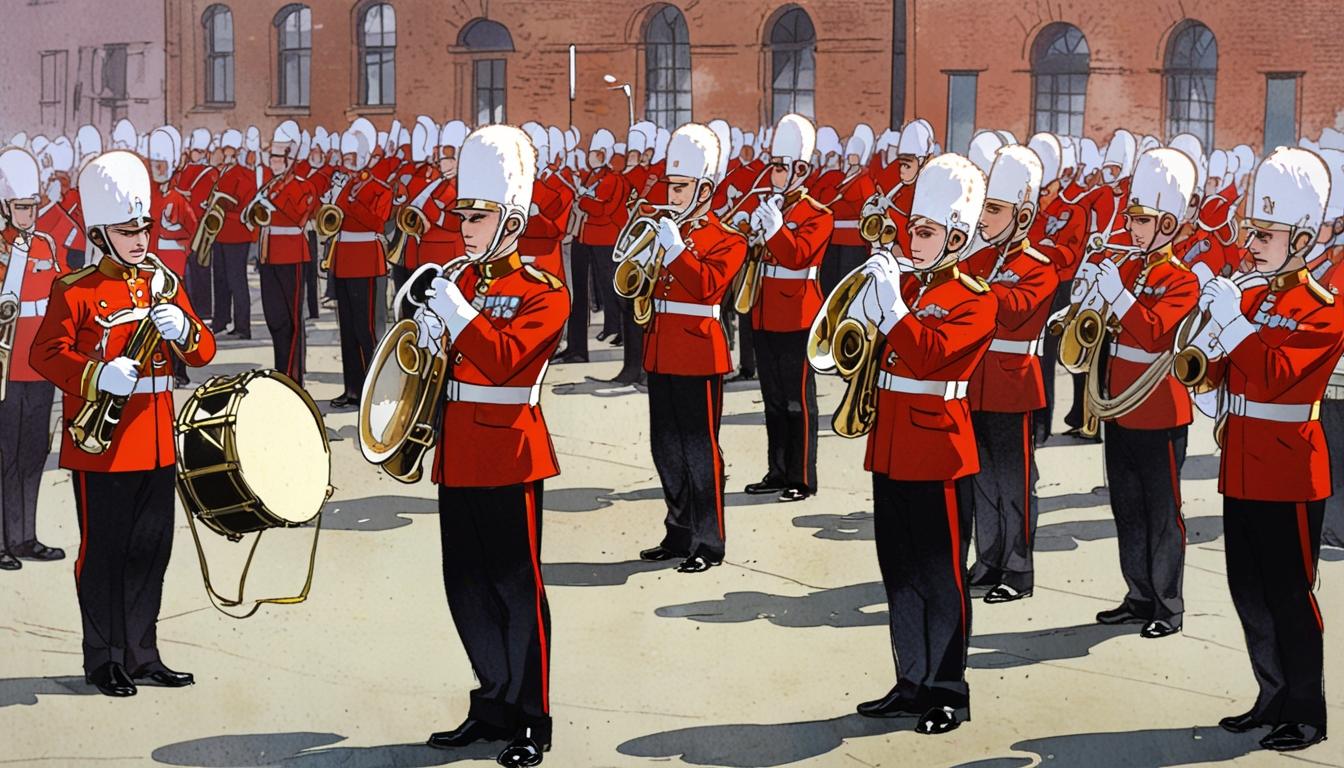In central London early yesterday morning, the Armed Forces showcased their ceremonial skills as military bands held rehearsals for the upcoming VE Day procession, celebrating the 80th anniversary of the end of the Second World War in Europe. These preparations are part of a series of events commencing on Monday, designed to pay tribute to those who served during the conflict.
However, as the nation reflects on its past, a recent survey conducted by Ipsos reveals significant insights into contemporary attitudes toward military service among the British populace. The poll, which surveyed over 1,000 adults, indicates that nearly half—specifically 48 per cent—of respondents would not be willing to take up arms for their country regardless of the circumstances.
The results highlight a division in willingness to fight: only 35 per cent of those surveyed expressed a readiness to serve, while 17 per cent remained uncertain. Notably, the survey found a marked difference in attitudes between genders; 49 per cent of men stated they would be willing to fight, in contrast to just 21 per cent of women. Among age cohorts, adults aged 18 to 34 were the most inclined to volunteer for military action, with 42 per cent expressing a willingness to serve. Conversely, individuals aged 35 to 54 were the least inclined, with only 28 per cent prepared to engage in combat, and over half indicating that no circumstances would lead them to do so.
The political affiliations of respondents also played a role in their willingness to serve, with voters from Reform UK showing the highest likelihood to fight, while supporters of the Liberal Democrats were the most inclined to refuse service.
Richard Gill, a former Army officer with a 15-year career that included service in Iraq and Afghanistan, provided commentary on the survey's findings. Speaking to the Daily Mail, he said, "The fact that so many would refuse to fight for Britain is a symptom of a deeper national malaise. We’ve stopped teaching pride in our country, its history, and its values. A nation unsure of itself cannot expect its people to defend it. That must change."
As Britain prepares to commemorate the sacrifices made during the Second World War, these survey results may provoke discussions about national identity and the values underpinning contemporary society.
Source: Noah Wire Services
